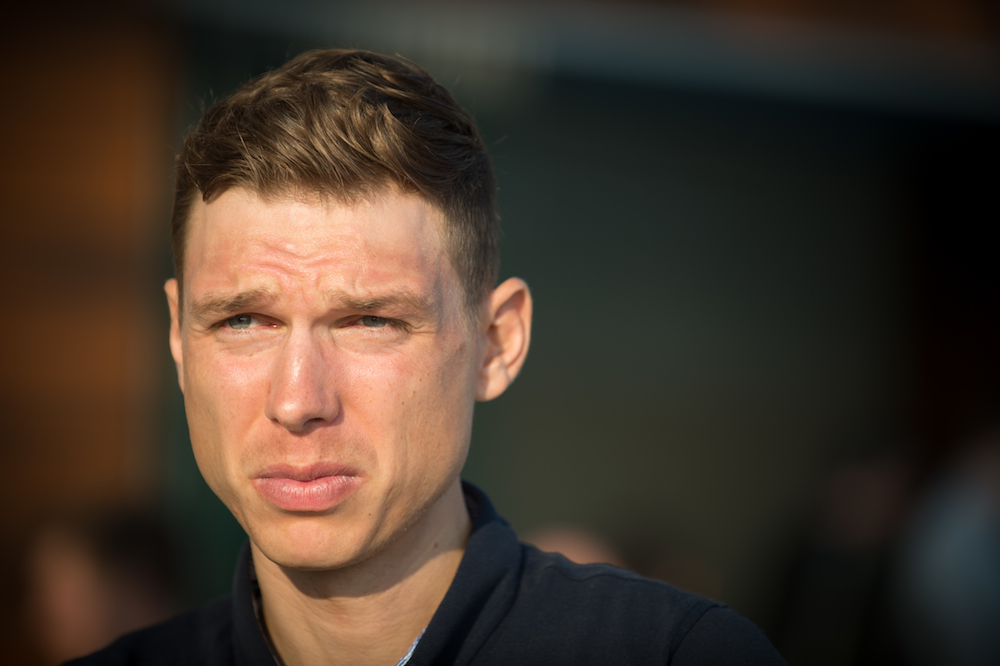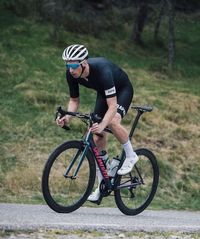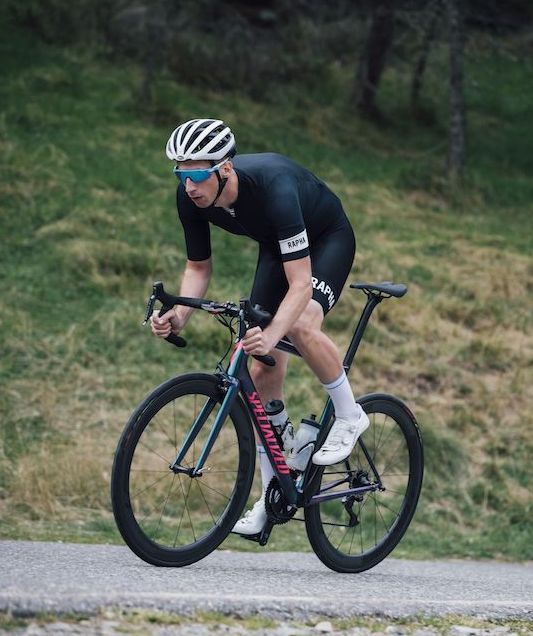Tony Martin: The harder the penalty for dopers, the better
Etixx - Quick-Step rider says that there can be redemption for those that dope, but hard penalities need to be enforced on clear cases

Etixx-QuickStep team presentation, Calpe, Spain. January 2015

Three-time world time trial champion Tony Martin has said that he is pleased with the UCI and World Anti-Doping Agency's decision at the beginning of January to introduce tougher bans for riders who test positive, saying that he believes "the harder the penalty [for dopers], the better."
The German was speaking at the Etixx - Quick-Step pre-season training camp in Calpe, Spain, and having recently endorsed a draft bill in Germany that aims to make doping a criminal offence, was encouraged that a variety of stronger punishments existed for varying doping offences, and not only for riders.
"I'm really happy that it's been made the law now in Germany, it's a big sign for the anti-doping fight," he told Cycling Weekly.
"It's not just about the athletes who cheat, it's also about the people behind them.
"If people do it, they have to be aware of really hard penalties, so I think it's a good sign and most of the people will now really think about whether they cheat or not.
"The harder the penalty, the better. If the case is clear that's always the point. There are a lot of cases where you don't know if they did on purpose or if they really did something wrong, but if the case is really clear everybody deserves a hard penalty."
>>> Tony Martin: Cancellara wrong, there can’t be enough attention on the Hour Record
The latest race content, interviews, features, reviews and expert buying guides, direct to your inbox!
Despite Sir Craig Reedie, president of WADA, publicly condeming the criminalisation of athletes, high-profile riders including Marcel Kittel and John Degenkolb also endorsed the German anti-doping bill, which has already been passed as similar laws in other European companies including Italy, Spain and France.
But Martin believes there is still a long way in eliminating doping from cycling as individual and team cases, such as Astana, continue to crop-up.
"Sometimes you get the feeling you make two steps ahead and then three steps back," he said.
"But you can't do anything about it. You can see it and accept it, but I think it's not right. I hope there will be some changes in the Astana team, but I don't understand it. I don't understand the people who decide to do this."
Martin, who is aiming to reclaim his world championship title after narrowly losing to Sir Bradley Wiggins last year, still believes that those involved in doping practices that show remorse deserve a second chance in cycling.
Martin also gave credence to the comments of his compatriot Kittel, who suggested that cycling would always "be seen as suspicious" as long as people like Bjarne Riis and Alexander Vinokourov were involved in the sport.
"I think if you see people like David Millar, he tested positive and then he was one of the big guys in the anti-doping fight" said Martin, "so if people really change and show that they've changed by doing a lot for the anti-doping fight, I think it's okay."
"Everybody can make a mistake and it was different times before 2008. If people really learnt from this time and changed then they deserve a second chance.
"But sure, there are some people from the old times that don't show any change and for sure they don't belong to the new cycling."
Follow on Twitter: @richwindy
Richard is digital editor of Cycling Weekly. Joining the team in 2013, Richard became editor of the website in 2014 and coordinates site content and strategy, leading the news team in coverage of the world's biggest races and working with the tech editor to deliver comprehensive buying guides, reviews, and the latest product news.
An occasional racer, Richard spends most of his time preparing for long-distance touring rides these days, or getting out to the Surrey Hills on the weekend on his Specialized Tarmac SL6 (with an obligatory pub stop of course).
